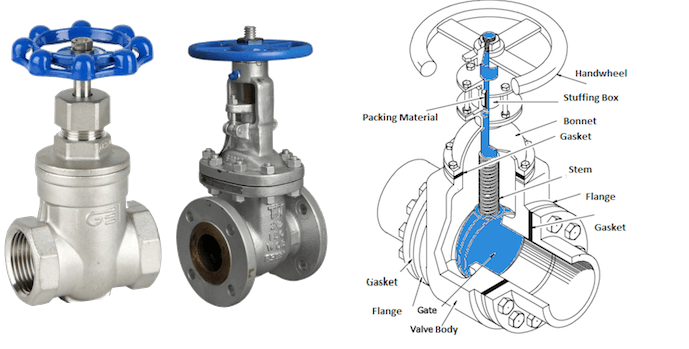Gate valves are widely used in various industries, including oil and gas, water treatment, power generation, and chemical processing. They are known for their versatility, reliability, and ability to control the flow of fluids and gases. In this article, we will discuss when you should use a gate valve and the benefits it can offer.
Advantages of Gate Valves
Gate valves have several advantages that make them a popular choice in various industries. Some of the key benefits include:
- High-pressure resistance: Gate valves can withstand high pressure and are designed to handle a wide range of pressure levels.
- Low maintenance: Gate valves have a simple design and few moving parts, which makes them easy to maintain and repair.
- High flow rates: Gate valves can handle high flow rates, making them ideal for applications where high volumes of fluids or gases need to be transported.
- Versatility: Gate valves can be used in a variety of applications, including on/off, throttling, and control systems.

Applications of Gate Valves
Gate valves are used in a variety of applications, including:
- Oil and gas production: Gate valves are used to control the flow of oil and gas in production, transportation, and refining.
- Water treatment: Gate valves are used to control the flow of water in water treatment plants, ensuring that water is clean and safe for consumption.
- Power generation: Gate valves are used in power plants to control the flow of steam and water, ensuring efficient generation of electricity.
- Chemical processing: Gate valves are used in chemical plants to control the flow of chemicals, acids, and other corrosive materials.
- Pipeline transportation: Gate valves are used in pipeline transportation to control the flow of liquids and gases, ensuring safe and efficient transportation.
When to Use a Gate Valve
A gate valve should be used in the following situations:
- When high pressure resistance is required: Gate valves can withstand high pressure and are designed to handle a wide range of pressure levels.
- When low maintenance is required: Gate valves have a simple design and few moving parts, which makes them easy to maintain and repair.
- When high flow rates are required: Gate valves can handle high flow rates, making them ideal for applications where high volumes of fluids or gases need to be transported.
- When versatility is required: Gate valves can be used in a variety of applications, including on/off, throttling, and control systems.
In summary, gate valves are versatile and reliable valves that can be used in a variety of industries. They offer several advantages, including high-pressure resistance, low maintenance, high flow rates, and versatility. If you are looking for a valve that can handle high pressure, require low maintenance, and provide high flow rates, a gate valve may be the best choice for your application.

Leave a Reply